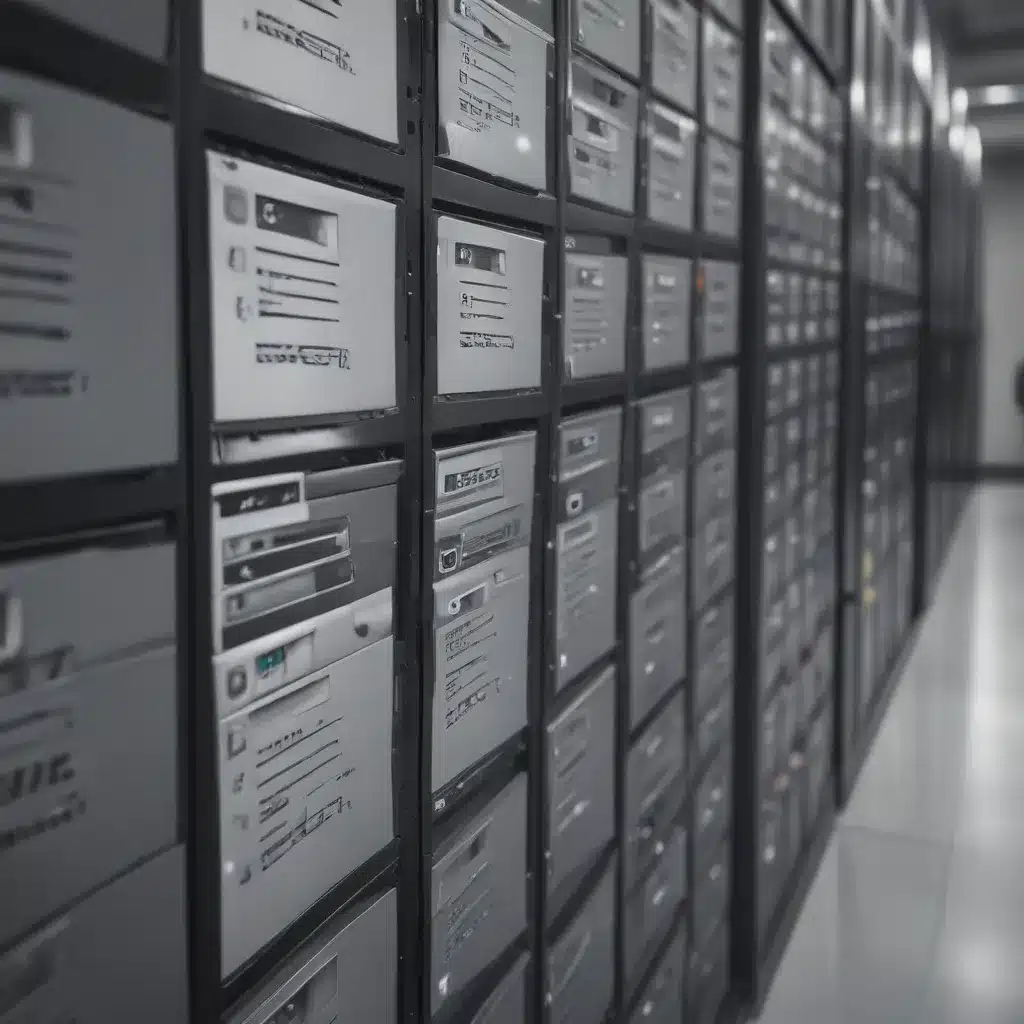Navigating the Compliance Maze: How Backups Keep You Safe
Ah, regulatory compliance – the bane of every business owner’s existence, right? Between GDPR, PCI-DSS, HIPAA, and a whole alphabet soup of other acronyms, it can feel like you need a law degree just to keep your head above water. But you know what they say – when life gives you lemons, make lemonade. And in this case, the lemonade is a robust data backup strategy that not only keeps your business safe, but also puts you on the fast track to compliance.
You see, my friends, data backups are the unsung heroes of the compliance world. They’re like the superheroes that swoop in and save the day when everything else goes to pot. Think about it – what’s the one thing that can make or break your ability to comply with all those pesky regulations? Yep, you guessed it – your data. If you can’t keep it safe, secure, and readily available, you’re looking at some serious trouble.
The Importance of Backups in Compliance
[1] Now, I know what you’re thinking – “But I already have a backup system in place. Aren’t I in the clear?” Not so fast, my friend. Sure, having a backup is a good start, but the real key is making sure it aligns with the specific requirements of the regulations you’re subject to.
Take GDPR, for example. This little gem of a regulation doesn’t just say you have to back up your data – it also dictates how you do it, where you store it, and how you can access it. And if you don’t tick all those boxes, well, let’s just say the EU regulators won’t be sending you a fruit basket anytime soon. [2]
The same goes for other regulations like PCI-DSS and HIPAA. These frameworks have very specific requirements when it comes to data backups, from encryption and access controls to retention periods and disaster recovery plans. Fail to meet those standards, and you can kiss your compliance certification goodbye.
Backup Best Practices for Regulatory Compliance
So, how do you ensure your backup strategy is up to snuff? Well, buckle up, because we’re about to go on a deep dive into the world of backup best practices.
First and foremost, you need to understand the regulations that apply to your business. [3] This means taking a good, hard look at your industry, your customers, and the types of data you handle. Once you’ve got a handle on that, you can start putting together a backup plan that ticks all the right boxes.
One of the key things to consider is the location of your backups. [4] Many regulations require that data be stored in a secure, off-site facility – no more keeping everything on that dusty old server in the basement. Cloud-based backups are often a great solution here, as they offer the added benefits of automatic updates and easy accessibility.
Another critical element is encryption. [5] Yep, that’s right – your backups need to be encrypted, just like the data you’re storing on your primary systems. This helps ensure that even if a bad actor gets their hands on your backups, they won’t be able to do anything with the information inside.
And let’s not forget about testing and documentation. [6] Compliance auditors love to see that you’re not just paying lip service to backup best practices – they want to see that you’re actually putting them into action. That means regularly testing your backup and restoration processes, and keeping detailed records of everything you do.
The Compliance Payoff: Building Trust and Resilience
Now, I know all of this might sound like a lot of work. And trust me, I get it – running a business is hard enough without having to worry about all these compliance hoops to jump through. But the way I see it, the payoff is well worth the effort.
[7] When you have a robust, compliant backup strategy in place, you’re not just protecting your data – you’re also building trust with your customers, partners, and regulators. They know that you take data security seriously, and that you’re committed to safeguarding their information. And in today’s high-stakes digital landscape, that kind of trust is worth its weight in gold.
But the benefits of compliance-driven backups go even deeper. [8] By ensuring that your data is always safe and secure, you’re also building a foundation of resilience for your business. When (not if) disaster strikes – whether it’s a ransomware attack, a natural disaster, or just good old-fashioned human error – you’ll be able to bounce back quickly, with minimal disruption to your operations.
So, the next time you’re feeling overwhelmed by the compliance gauntlet, remember this: your data backups are the secret weapon that can help you navigate it with ease. With the right strategies in place, you can not only stay on the right side of the law, but also position your business for long-term success. And who knows, you might even have a little fun along the way. After all, what’s a compliance requirement without a bit of creative problem-solving, right?
[1] https://www.outsourceitcorp.com/data-backup-and-compliance-navigating-regulatory-requirements/
[2] https://www.veeam.com/blog/microsoft-security-compliance.html
[3] https://www.outsourceitcorp.com/data-backup-and-compliance-navigating-regulatory-requirements/
[4] https://www.outsourceitcorp.com/data-backup-and-compliance-navigating-regulatory-requirements/
[5] https://www.nccoe.nist.gov/sites/default/files/legacy-files/msp-protecting-data-extended.pdf
[6] https://elsmar.com/elsmarqualityforum/threads/fda-or-ce-requirements-for-periodic-checks-of-data-backups-and-retrievals.72093/
[7] https://blogs.oracle.com/infrastructure/post/what-can-be-learned-from-data-management-regulations
[8] https://www.linkedin.com/pulse/regulatory-compliance-data-backup-cybersecurity













